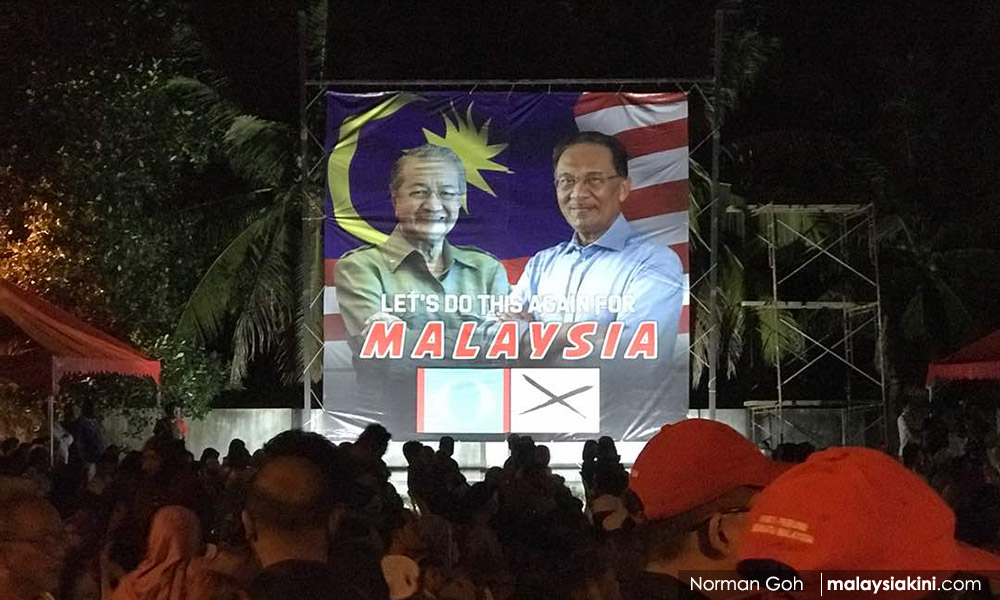COMMENT | Dr Mahathir Mohamad and Anwar Ibrahim had their historic meeting on Sept 5, 2016.
Since then much has been written on their reconciliation, Pakatan Harapan’s formation and Mahathir’s nomination as prime minister if the opposition wins the 14th general election (GE14).
About Mahathir’s political return we now know many things except the puzzle that is the man himself, around whom an amazing turn of events revolves.
We can tackle the puzzle by raising two questions: what is the underlying motif of his intervention? What are his deep personal motivations for fighting Najib Abdul Razak and the Umno-BN regime?
Looking back, it seems surreal that all the opposition’s roads lead to Mahathir.
“Mahathir’s aura,” Mazlan Aliman of Anak Felda claimed, reassured Felda settlers that a Pakatan government would restore Felda and resolve the settlers’ financial burdens. Indeed, one Pakatan slogan for Felda areas is “Selamatkan Felda, Selamatkan Malaysia” (Save Felda, Save Malaysia).
Amanah leaders, such as Mohamad Sabu and Salahuddin Ayub, are confident that Pakatan Harapan’s nomination of Mahathir as ‘prime minister-in-waiting’ shattered Umno’s propaganda that an Umno defeat would mean “Chinese DAP domination”.
Mahathir has brought many advantages to the Harapan side. But his unsuspected value lies in his persona of a saviour. Historical circumstances and his exertions conferred that upon him.
The challenge
He was involved in the anti-Malayan Union movement that Malays regarded as the definitive event in saving Tanah Melayu and the special position of the Malays from colonial perfidy and immigrant domination.
As a young doctor, he built up a good reputation for treating the sick, an esteemed way of saving lives. As was “Dr Umno”, he was an ideologue for the mission of saving the ‘Malay race’ from poverty and economic backwardness.
Abdul Razak Hussein co-opted Mahathir for his project to recover Umno’s pre-eminence that was battered in the May 1969 general election. In 1988, Mahathir “saved” the de-registered Umno by forming Umno Baru.

He risked his own political survival to rescue the national economy in two crises. In 1986 he “held the New Economic Policy in abeyance”, one reason for Team B’s challenge to his leadership of Umno. In 1998 he imposed capital controls against economic orthodoxy and international condemnation.
In ‘Menghadapi Cabaran’ (The Challenge), a book he wrote when he was the deputy prime minister, he endlessly lectured the Malays on their ‘unworthy values’, their tendency towards religious obscurantism and indifference to new forms of colonial subjection. It was tiresome to them but Mahathir meant to save the Malays from themselves!
One begins to see how a man with this background offers himself as a rallying point to rescue the economy from bankruptcy, the people from suffering and the nation from continued...

